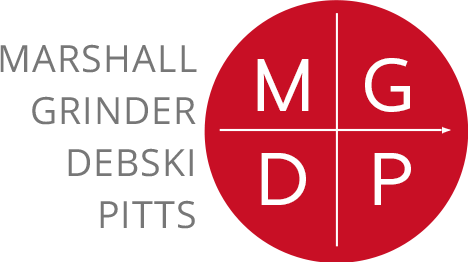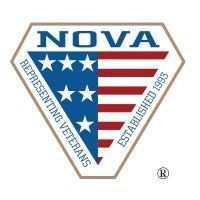November 20, 2025
Workers compensation cases can feel overwhelming, as can any scenario involving an unexpected workplace injury. Many employees find themselves unsure of where to start, how to file a claim, or what their long-term options might be. Because these situations often unfold during moments of stress and uncertainty, understanding the process can ease confusion and help injured workers regain a sense of control. Supportive legal professionals play an essential role by guiding clients through deadlines, documentation, and the many steps required to protect their rights. According to Injured Call Today, more than 400,000 personal injury claims occur annually, a number that underscores how often people rely on legal systems for protection after an accident. Although every claim is unique, knowing what typically occurs in a workers compensation lawsuit can help individuals feel empowered and prepared. With clear information, organized planning, and the right representation, employees can pursue fair treatment and the resources needed for recovery.
The Purpose of the System
At its foundation, workers compensation operates as a structured method for ensuring employees receive medical care and wage support following a job-related injury. The system is designed to function without assigning blame, allowing injured workers to access benefits even when no one is at fault. This no-fault principle helps reduce conflict, encourages timely reporting, and streamlines the path toward necessary treatment. By focusing on support rather than dispute, the framework helps maintain professional relationships while reducing the need for extensive litigation. When employees understand the goals of workers compensation, they often feel more confident participating in the process and seeking the help they deserve. Skilled legal providers also help maximize benefits by ensuring all documentation accurately reflects the severity of injuries and financial losses. Because each state sets its own rules, professional insight becomes especially valuable in determining eligibility, deadlines, and the level of compensation available.
Eligibility and Qualifications
Determining whether an individual qualifies for workers compensation depends heavily on employment status and the circumstances related to the injury. Most traditional employees fall under their employer's mandatory coverage policies, but independent contractors, seasonal workers, and volunteers may face different requirements. Injuries must occur in the scope of work, either onsite or while performing job duties elsewhere, to be considered valid. This might involve accidents, repetitive-motion injuries, or exposure-related conditions that develop over time. When legal professionals evaluate a case, they examine employment records, job descriptions, and incident reports to confirm eligibility. Their guidance helps injured workers understand whether additional documentation is necessary and how to respond if a claim is challenged. Because qualification rules vary greatly by jurisdiction, an experienced provider ensures that all steps align with state regulations and that no opportunity for rightful benefits is overlooked.
Common Injuries and Conditions
Workers compensation benefits apply to a wide range of injuries, from sudden physical accidents to illnesses that develop gradually due to workplace conditions. Sprains, fractures, burns, and cuts often represent immediate harm, while back strain, repetitive stress injuries, and exposure-based illnesses can build over time. Mental health challenges connected to traumatic workplace events may also qualify, though they require additional evidence. Documenting injuries quickly and thoroughly helps strengthen a case and supports a smoother claims process. Legal teams often advise clients on how to gather meaningful evidence, such as medical evaluations, diagnostic reports, and workplace photographs. This attention to detail helps ensure that all qualifying injuries receive proper recognition under workers compensation guidelines. When handled professionally, claims move forward with fewer delays and a higher likelihood of approval.
Legal Timelines
One of the greatest challenges injured workers face is managing the strict timelines associated with filing a workers compensation claim. Each state sets its own rules for reporting injuries, submitting forms, and appealing denied decisions. Missing even one of these deadlines can jeopardize an entire case. Because recovery itself can be physically and emotionally demanding, many workers rely on legal professionals to keep these deadlines organized and ensure that each step is completed correctly. These providers understand how to prepare documents efficiently, gather the right evidence, and anticipate potential delays. They also help clients understand what to expect during each phase of the process, making it easier to stay informed and prepared. With proper guidance, injured employees can meet every requirement while maintaining focus on their healing.
Denied or Reduced Claims
Denials occur for many reasons, and experiencing one can be disheartening for individuals already dealing with workplace injuries. A denial may result from incomplete documents, inconsistent medical reports, questions about employment status, or disputes regarding how the injury occurred. Even approved claims may offer benefits that fall short of covering medical bills and lost wages. When this happens, workers compensation attorneys play a pivotal role in reviewing the case, identifying missing or unclear information, and strengthening the claim for an appeal. Their knowledge helps workers understand whether the denial is justified or whether additional action can reverse the decision. If fair compensation is still not offered after an appeal, a formal lawsuit may be the next step. Professionals help evaluate whether litigation is appropriate and guide clients through building a compelling case.
Professional Support
Because workers compensation laws differ across states, seeking support from knowledgeable legal providers helps ensure a case is handled correctly from the beginning. These professionals help clients gather evidence, prepare statements, secure witness accounts, and obtain necessary medical evaluations. Their understanding of legal strategy helps avoid common errors that can delay or weaken a claim. They also communicate on behalf of clients, reducing stress and preventing miscommunication during critical phases of the process. When negotiations arise, experienced providers advocate for fair settlements and help clients understand what they should reasonably expect. Their guidance not only strengthens the likelihood of a favorable outcome but also gives injured workers peace of mind throughout the process.
The Litigation Process
If a workers compensation lawsuit becomes necessary, preparation plays a major role in determining success. This stage involves reviewing all claim-related documents, gathering additional evidence, and preparing clear, consistent statements describing the injury and its impact. Legal teams help ensure that all information aligns, addresses potential disputes, and accurately conveys the extent of damages. Discovery, negotiations, and pre-trial conferences all require careful attention and organized planning. With a dedicated professional guiding each step, workers reduce the risk of procedural mistakes and increase the strength of their argument. A well-prepared case positions the injured worker to pursue full benefits, medical support, and long-term resources needed for recovery.
Trial Expectations
A workers compensation trial gives both sides the opportunity to present evidence, question witnesses, and offer arguments supporting their positions. Judges or juries review the facts to determine whether compensation should be awarded and in what amount. Although trials can be unpredictable, thorough preparation helps reinforce the injured worker's credibility. Professional providers take the lead in presenting medical evidence, expert opinions, and documentation that supports the claim. They also help clients feel prepared for testimony by explaining the process and offering guidance on responding clearly and calmly. With skilled representation, injured workers feel more confident knowing that each part of their story is communicated effectively.
Workers compensation cases require patience, organization, and reliable support, especially for individuals navigating recovery while facing major financial and personal challenges. Understanding how claims work, what evidence is required, and when legal intervention becomes necessary helps injured workers make informed decisions. Professional providers offer essential guidance at every stage, ensuring that each requirement is met and each opportunity for rightful compensation is pursued. By choosing experienced representation and approaching the process with clear expectations, workers can protect their well-being, secure needed benefits, and move forward with greater peace of mind. For strong, knowledgeable support throughout every stage of the process, injured workers can turn to Marshall Grinder Debski Pitts.








